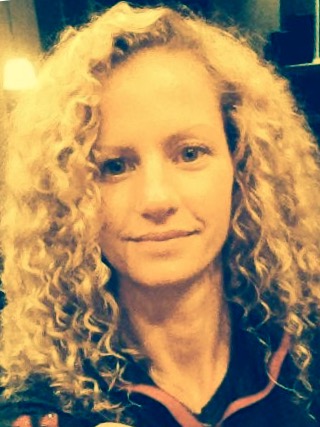Contributor Spotlight: Chelsea Dingman
Chelsea Dingman’s poems “Shipwrecks & Drownings” and “Nocturne from a Ship’s Hold” are featured in Issue 75 of the Bellingham Review.
What would you like to share with our readers about the work you contributed to the Bellingham Review?
These poems are part of a manuscript that I wrote loosely based on my grandfather’s emigration from Ukraine to Western Canada in 1924. In it, I explore different modes of transport: walking, traveling by train, and traveling by ship. I was particularly interested in how it is to move through a landscape on foot, as opposed to being transported through a landscape, and how that affects the speaker’s sense of agency. I was also examining themes of personal exile: Ukrainians were not able to hold jobs and had few rights under Polish rule at that time. It was necessary to leave to find sanctuary in another country, though this leaving is never reconciled. In “Shipwrecks & Drownings,” I examine the emigrant body as artifact. Just like the ships. Like what is lost at sea. In “Nocturne,” I wanted to capture the stillness of the body inside the ship, as it moves almost against the speaker’s will.
Tell us about your writing life.
I’ve been writing for years, but I took time away to have two children and to travel for my husband’s career. I recently completed my MFA, which helped my work evolve in terms of structure and form and clarity. I write because it’s how I respond to the world. Even little happenings keep me writing. I also write because I love language more than I can explain. My obsessions lately have been life and death, or the intersection of those two things. I write the body frequently. I write the female body insistently. Images of the natural world clutter my mind when I write. I obsessively write weather because it so affects my moods. Questions as to faith, permanence, and possibility have been plaguing my work lately.
Which non-writing aspect(s) of your life most influences your writing?
Other writing influences my work, as do weather and events in the world. Research also influences my writing.
What writing advice has stayed with you?
Don’t repeat yourself.
Writers read and write: put in the work.
What is your favorite book (or essay, poem, short story)? Favorite writer(s)?
My favourite book is Song by Brigit Pegeen Kelly. If I have to pick one, Song is one that I return to often.
My favourite writers are too numerous to list here, but two writers who have been hugely influential in my life and writing are Jay Hopler and John A. Nieves.
What are you reading right now?
Li-Young Lee’s Behind My Eyes and Carl Phillips’ Reconnaissance.
What project(s) are you working on now, or next?
I just finished a manuscript about how infertility and stillbirth affect a couple who have been in a long relationship. I started my next project, but the project hasn’t completely taken shape yet. It is going to be a collection of poems that focuses on the science and experience of traumatic brain injury.
Anything else our readers might want to know about you?
I’m Canadian. I live in Florida. Hurricanes make me (very) nervous.
Where can our readers connect with you online?
CHELSEA DINGMAN is a Canadian citizen and Visiting Instructor at the University of South Florida. Her first book, Thaw, was chosen by Allison Joseph to win the National Poetry Series (University of Georgia Press, 2017). In 2016-17, she also won The Southeast Review’s Gearhart Poetry Prize, The Sycamore Review’s Wabash Prize, and Water-stone Review’s Jane Kenyon Poetry Prize. Her work can be found in Ninth Letter, The Colorado Review, Mid-American Review, Cincinnati Review, and Gulf Coast, among others. Visit her website: chelseadingman.com.
Featured Image: “Sailing at Sunset” by Tom
